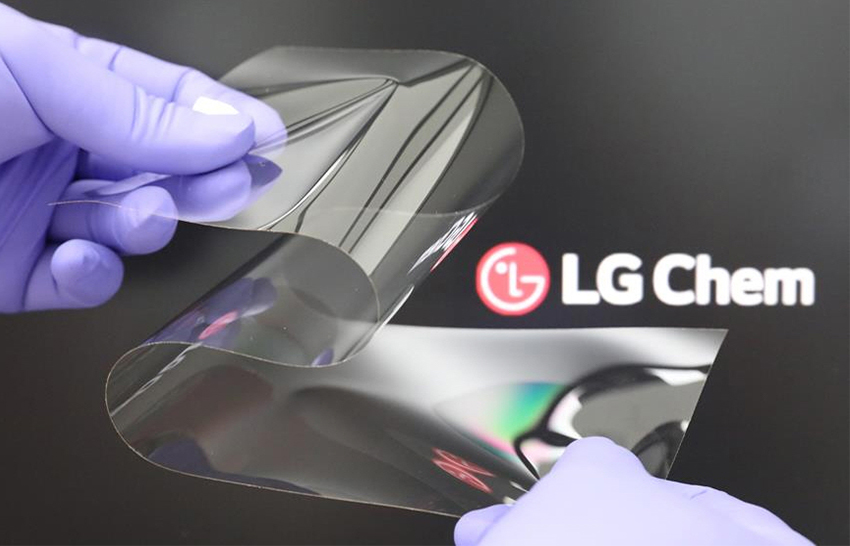
LG Chem said on Tuesday it has developed a new cover window used to protect foldable displays.
A cover window is a protective film that is attached on top of folding displays to protect them from external damage.
Called Real Folding Glass, the company said the new technology consists of a specially developed material that is coated onto the surface of a polyethylene terephthalate (PET) film, a kind of plastic, to make it “hard as glass” while still remaining flexible.
According to LG Chem, the coating material is attached on both sides of the PET film and has a thickness of a few dozen micrometres. This enhances the heat resistance and mechanical properties of the film, it said.
LG Chem claimed its new product was thinner, more flexible, and more resistant to cracks than existing cover windows made out of glass or polyimide, which is also a kind of plastic.
The cover window can withstand over 200,000 folding actions, the company claimed, and can be used for both in-folding and out-folding displays.
LG Chem said the new material would be ready for mass production in 2023.
It also added it was developing a way to use the coating material without the use of PET films to make the cover window even thinner.
Samsung currently uses ultra-thin glass as cover windows for its Galaxy Z series of foldable phones. The glass is provided by Germany’s Schott and US’ Corning.
Chinese companies currently use both ultra-thin glass and polyimide as cover windows for their foldable phones.
Meanwhile, Samsung on Tuesday introduced its new microSD cards.
The new Pro Plus and upgraded Evo Plus microSD cards have improved six-proof protection that makes them withstand water, extreme temperatures, x-ray, wear out, drops, and magnetic impact better than previous iterations, the company said.
The Pro Plus has maximum read and write speeds of 160MB/s and 120MB/s, respectively, and comes in 128GB, 256GB, and 512GB options.
The Evo Plus offers transfer speeds of up to 130MB/s and comes in the same storage options as Pro Plus.




















